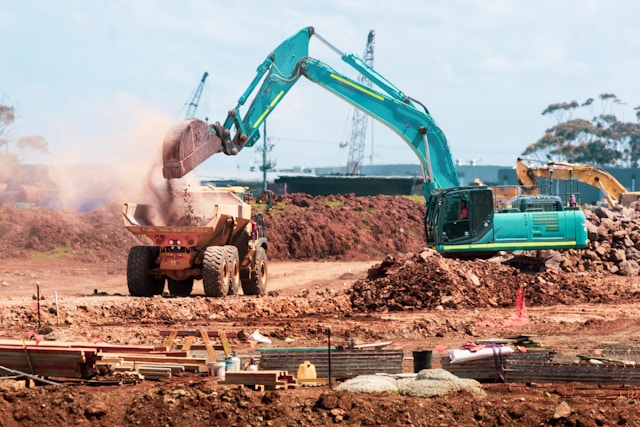Key Takeaways:
- Incorporating innovative techniques and sustainable materials is essential in modern roadway construction.
- Technology and automation have a profound influence on enhancing road infrastructure quality and safety.
- Insight into current economic strategies and the anticipated future advancements that will redefine roadway construction.
Table of Contents:
- Introduction to Modern Roadway Construction
- The Significance of Proper Planning and Design
- Sustainability in Road Construction Materials
- The Role of Automation and Machinery
- Funding and Economics of Roadway Projects
- Advancements in Asphalt Technologies
- Safety Measures and Traffic Management
- The Future of Roadway Construction
- Global Perspectives and Lessons Learned
- Educating the Next Generation of Road Builders
Introduction to Modern Roadway Construction
Modern techniques and materials have propelled roadway construction into a new era in the bustling heart of urban environments, such as road construction Boston MA, and across the ribbon-like rural roads that stretch to connect villages. Sweeping advancements have enabled projects to tread more lightly on the earth while achieving longer-lasting results. These advancements are not merely about constructing paths from point A to point B; they are about redefining the development journey with innovation, sustainability, and efficiency. This discussion focuses on the key aspects influencing today’s roadway construction industry and scrutinizes the elements shaping its tomorrow.
The Significance of Proper Planning and Design
A road’s journey begins long before asphalt is poured; it starts with a blueprint—ideation that takes shape through sophisticated planning and design. The infusion of computer-aided design (CAD) into roadway construction has revolutionized how engineers conceptualize and execute road layouts. CAD enables meticulous planning, interplaying with myriad variables, including topography, urban constraints, and the surrounding ecosystem. The resultant designs integrate seamlessly with the natural landscape, laying the groundwork for resilient infrastructure that complements its environment while geared to the rigors of future demands.
Sustainability in Road Construction Materials
Today’s road-building sphere is deeply intertwined with the mandate for sustainability. Industry pioneers are pushing the envelope by integrating eco-friendly materials—such as recycled concrete, rubber from discarded tires, and even plastic waste—into the fabric of the roads we travel. Implementing these materials is more than a nod to environmental stewardship; it’s a robust strategy to enhance the longevity and resilience of road surfaces. Sustainable materials promise reduced maintenance and refurbishment, posing a compelling case for broad adoption as they prove their mettle in durability and performance.
The Role of Automation and Machinery
Automated machinery is carving a path through the traditional practices of roadway construction. Autonomous pavers and compactors are a glimpse into an era where precision is calculated to the last millimeter, and the absence of human exposure to hazardous working conditions measures efficiency. As these machines tirelessly lay and finish miles upon miles of roads, the embodied energy savings and reduction in carbon footprint underscore the profound benefits of automation that extend beyond just economic savings—it’s a transformative force for the welfare of the workforce and the planet.
Funding and Economics of Roadway Projects
The economics of constructing the fundamental veins of a nation’s infrastructure are as complex as they are critical. The investment puzzle involves a blend of public funds and private capital, an intricate dance of financial models that must sustain the immense costs without sacrificing quality. Initiatives like public-private partnerships (PPPs) herald an era of collaborative financing, pooling resources to bring to life the arteries of commerce and connectivity. A global vantage point, looking at how different countries navigate the funding and economics of road projects, can breathe wisdom into the local context, fostering more brilliant, more sustainable investment strategies.
Advancements in Asphalt Technologies
Asphalt, the humble yet critical component of road construction, has undergone transformative developments. Yesterday’s black, sticky substance has evolved into engineered mixes that promise longevity against the harshest elements and ever-increasing traffic loads. Innovations in asphalt technologies, often developed from extensive research such as the efforts showcased in the Federal Highway Administration’s Long-Term Pavement Performance (LTPP) program, play a pivotal role in revolutionizing road quality. Asphalt is no longer just a material; it’s a sophisticated product, fine-tuned to serve the dynamic needs of modern travel.
Safety Measures and Traffic Management
Construction zones typically teem with risks; however, implementing rigorous safety protocols and traffic management has drastically mitigated such perils. Strategically designed barriers, prominent signage, and synchronized traffic control systems harness the chaos into order, shielding both construction crews and the traveling public. These measures ensure that the process of creating safe roads is not a source of hazard. The commitment to safety extends beyond the active construction phase. Once completed, these roads stand as testaments to the meticulous planning and unwavering adherence to the safety ethos that produced them.
The Future of Roadway Construction
As we gaze into the crystal ball of roadway construction, myriad innovations peer back at us. Materials science is pushing boundaries with self-healing asphalt and concrete, intelligent sensors are being embedded to provide real-time data, and AI-driven equipment is paving the way for construction sites of the future. These advancements signal the dawn of interconnected ‘smart’ roads that not only self-report their condition but also communicate with the vehicles traversing them, thus heralding a new epoch of intelligent infrastructure reflective of a truly networked world.
Global Perspectives and Lessons Learned
From the sun-soaked highways of Australia to the intricate network of roads crisscrossing the European continent, the global exchange of ideas and techniques in roadway construction is a treasure trove of innovation and expertise. Every geographical location holds unique challenges, fostering tailored solutions that, when shared, become part of a global knowledge repository. This repository, ripe with learned experiences, is a testament to humankind’s relentless pursuit of progression and an invaluable resource for any nation looking to refine its approach to road building.
Educating the Next Generation of Road Builders
As the toolbox of roadway construction brims with more sophisticated tools, so must the craftspeople’s skills and knowledge. Educational programs and technical training are being re-imagined to equip the rising cadres of construction specialists with the insight to operate in a technological landscape. Emphasizing such education and professional development ensures that the sector continues to drive forward, led by a workforce that is as dynamic and innovative as the roads they construct.




